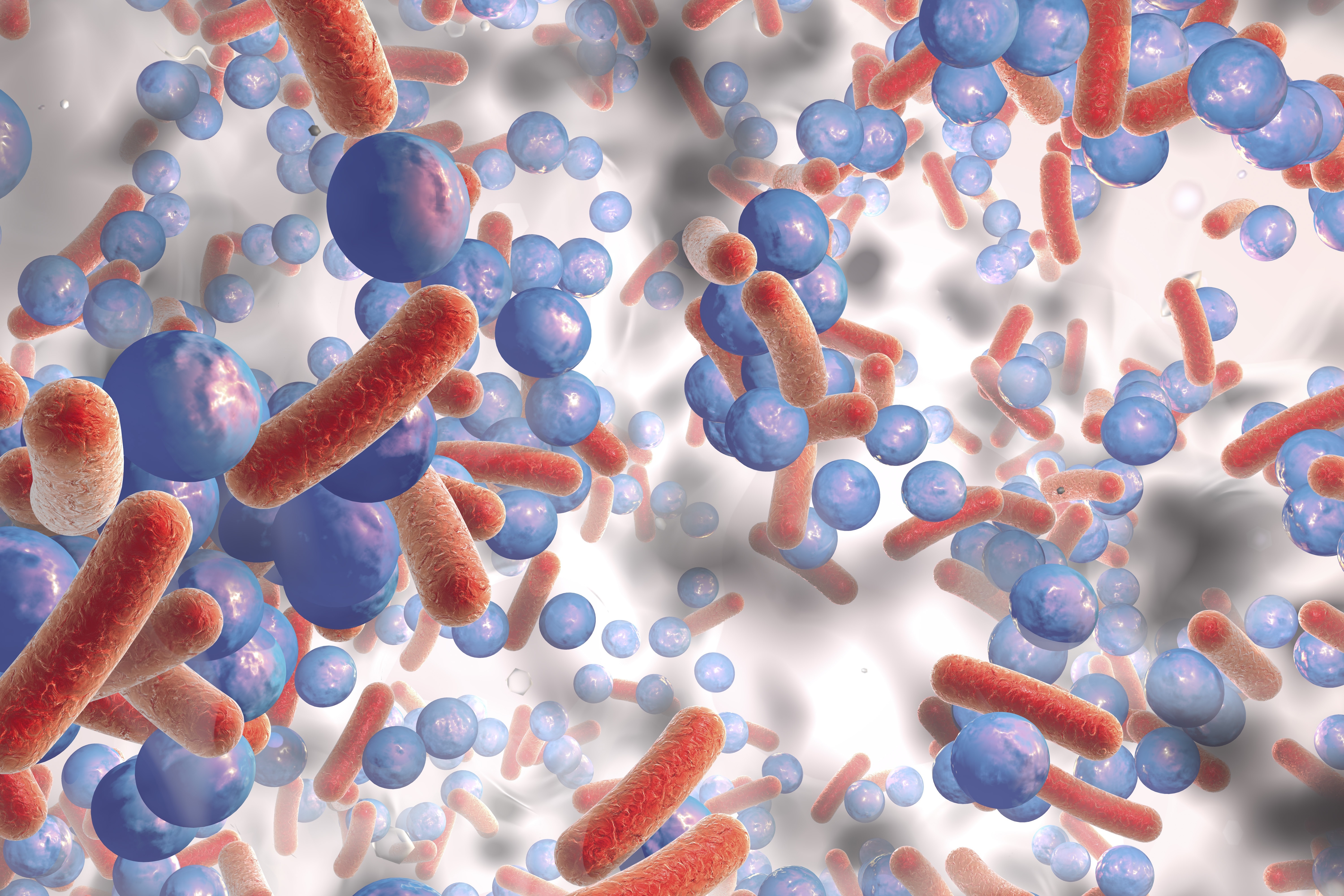
Two New Resistance-Proof Antibiotics Have Been Created
 Two new antibiotics have been created at the Inserm and Université de Rennes 1. They are effective against Gram-positive and negative multi-resistant bacteria, and evidence suggests they do not trigger resistance against infection. These results come from mouse studies published in PLOS Biology.
Two new antibiotics have been created at the Inserm and Université de Rennes 1. They are effective against Gram-positive and negative multi-resistant bacteria, and evidence suggests they do not trigger resistance against infection. These results come from mouse studies published in PLOS Biology.Antibiotics are incredibly important tool in the fight against infection. Although antibiotic resistance occurs naturally over time through genetic changes, it is a growing global concern. The misuse and overuse of antibiotics speed up the process of resistance, and many common but vital medical procedures (including cancer chemotherapy, cesarian sections, or hip replacements) become extremely high risk without appropriate and effective antibiotics to protect patients against infections.
In the study published on July 9, 2019, Professor Brice Felden and his research team identified a new bacterial toxin that they changed into a potent antibiotic. These antibiotics were found to be active against bacteria triggering human infections, whether Gram-positive or negative.
A New Family of Peptidomimetics
“What we had identified was a molecule with dual toxic and antibiotic properties. We thought that if we could separate these activities, we would be able to create a new antibiotic non-toxic to the body – a challenge that we accepted.”
The team made a new family of peptidomimetics “inspired from a natural bacterial peptide”, as written in the study. They found that two of the four peptides they studied were effective against methicillin-resistant Staphylococcus aureus (MRSA) in mouse models presenting both mild and severe sepsis.
The study notes that antimicrobial peptides are “essential components of innate immunity in most organisms”, but they are “limited by their toxicity and reduced half-lives in human body fluids.” However, small bacterial toxins can act like antimicrobial peptides when secreted, with their toxicity to human cells reduced without effecting their ability to act as antibiotics.
A key finding of the research was that the bacteria used did not form resistances after mice were exposed for two weeks or after use for four and six days. Additionally, the peptides were not toxic in human erythrocytes (red blood cells), human kidney cells, zebra fish embryos, or mice.
The mechanisms by which the peptidomimetics perform their antibacterial functions is due in part to its non-natural amino acids and their ability to reinforce association of these compounds with the membranes in infectious bacteria. Being able to bind strongly allows for membrane permeability that results in bacteria death.
Could Toxins be used as Antibiotic Sources?
The study concludes:
“We have identified therapeutic agents that can provide alternative treatments against antimicrobial resistance. The barrier to development of many membrane-acting antibiotics has been lack of efficacy in systemic infections, usually due to poor stability and/or toxicity. In this study, these obstacles were successfully passed.”
The authors note that another implication of their research is that toxins could be considered as sources for new antibiotics. The study is limited by its short time frames for the experiments, which only stretched to 15 days. The next steps for the research include beginning phase I clinical trials in humans.
Source:
Antimicrobial Resistance - World Health Organization
Journal reference:
Novel Antibiotics Effective Against Gram-Positive and Negative Multi-Resistant Bacteria with Limited Resistance. Felden, Brice, Baudy-Floc’h, Michèle, and Bondon, Arnaud. PlosBiology, 2019. https://doi.org/10.1371/journal.pbio.3000337

































No hay comentarios:
Publicar un comentario